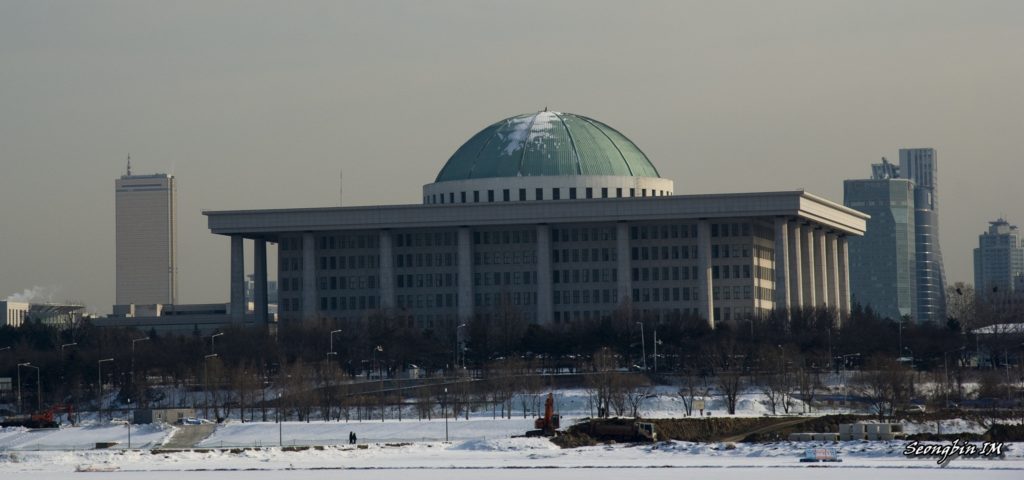The Peninsula
The Story of South Korea’s Record-Breaking Filibuster

By Jenna Gibson
Seventy hours down, three hundred to go.
The South Korean National Assembly is currently in the middle of its first filibuster in decades, already smashing the world record for longest filibuster and still going strong.
Members of Korea’s opposition parties banded together on February 23 to start the filibuster in an attempt to block the passage of a new anti-terrorism bill. The bill would give the National Intelligence Service access to private communications as well as travel and financial records for those under investigation.
This bill was first introduced in 2001 in the aftermath of 9/11 and the American passage of the Patriot Act. After the recent provocations from North Korea, the NIS released information stating that the DPRK may be planning a terror attack in the South, which may have prompted lawmakers to bring the legislation back to a vote. Critics of the bill have argued that the legislation gives the spy agency too much authority without enough oversight.
With 52 percent of the votes, the ruling conservative Saenuri Party could have passed this legislation on its own – until the opposition parties banded together to block their vote. This is the first time the National Assembly has seen a filibuster since 1969.
Similar to the rules in the U.S. Senate, three-fifths of the members are required to stop a filibuster. However, unlike the Senate, the National Assembly requires one-third of members to be on board before beginning a filibuster at all. This may be one of the reasons it has been so rarely invoked in Korean history.
In contrast, the United States Senators have not hesitated to invoke their right to filibuster. By some counts, filibuster attempts reached as high as 200 in 2013. However, it is notoriously hard to count actual filibusters, as this Washington Post article explains. One reason is that sometimes the Senate preemptively sets the threshold for support of legislation at 60 votes, whether or not a member is threatening to stage a traditional talking filibuster to delay legislation. There are still some recent examples, though – Rand Paul famously spoke for nearly 13 hours to delay the confirmation of John Brennan as Director of the CIA, and again for more than 10 hours in 2015 when a renewal of the Patriot Act was up for vote.
In Korea, some have accused the participating lawmakers of pandering to the electorate ahead of the National Assembly’s next election, which will take place this April. “The National Assembly hall has turned into a place where candidates do their PR ahead of the general election,” said Won Yoo-chul, floor leader for the ruling Saenuri Party. “They are holding a contest to see who lasts the longest, and those who manage to do that will attract attention from the public.”
Spectacle or not, the filibuster has certainly captured the attention of the Korean public. Filibuster-related terms have been regularly trending on Naver and on Twitter’s worldwide trends, including the names of lawmakers and the newly coined konglish term “필리버스터,” a Korean transliteration of the English word “filibuster.”
Korean netizens have also created an “online filibuster” where the public can watch a livestream of the proceedings and show their support – as of February 26, more than 33,500 people have signed up as “participants.”
The opposition lawmakers need to last for nearly two more weeks to reach the end of the National Assembly’s current session on March 11. Although the bill will be automatically re-introduced at the following session, the April election may alter the makeup of the National Assembly.
So far, sixteen lawmakers have taken the stage, most talking for a few hours at a time. Eun Soo-mi, ignoring the heckling of her peers, lasted almost 11 hours – making her the record holder for longest ever speech in the National Assembly.
Altogether, the chain of speakers have broken the record for longest filibuster, previously set by Canada’s New Democratic Party in 2011 with 58 hours of non-stop talking. The record for longest filibuster by an individual was set by Sen. Strom Thurmond in 1957 when he spoke for 24 hours and 18 minutes in protest of the Civil Rights Act.
Jenna Gibson is the Director of Communications at the Korea Economic Institute of America. The views expressed here are the author’s alone. KEI intern Lakjune Jung contributed to research for this post.
Photo from Seongbin Im’s photostream on flickr Creative Commons.
